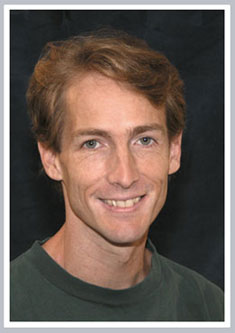Jason Davis is starting his second year as a PhD candidate in the Geography Department after having been offered two impressive fellowships. The first is a Jacob Javits Fellowship which is administered by the Department of Education and provides financial assistance to students in the arts, humanities, and social sciences. The fellowship consists of an institutional payment (accepted by the institution of higher education in lieu of all tuition and fees for the fellow) and a stipend (based on the fellow’s financial need as determined by the measurements of the Federal Student Assistance Processing System). In fiscal year 2005, the institutional payment was $11,822 and the maximum stipend was $30,000. Undergraduate seniors and graduate students that have completed less than one year of course work on a terminal MA in a field where the Masters is the highest level that can be achieved or first year PhDs can apply. Jason points out that “the award should cover my tuition and expenses for the next four years. I would strongly recommend that all incoming graduate students apply for this grant, as the competition is not as intense as the NSF, and the award is equivalent for a four year period instead of the three years that the NSF offers. The next deadline to apply is October 3, 2005.”
Jason was also offered, but had to decline, the NASA Earth System Science (ESS) Graduate Student Fellowship that is awarded to MA and PhD candidates who seek to understand earth system dynamics, anthropogenic natural resource change, and space exploration. The fellowship attracted 233 applications, representing over 103 universities and educational institutions from 40 states, and a total of 65 students were selected as recipients of the fellowships this year. Fellowships are given for an initial 1-year term and may be renewed annually for up to three years total, based on satisfactory progress as reflected in academic performance and evaluations made by faculty advisors. The amount of award is $24,000 per annum, including an $18,000 student stipend and an allowance of up to $6,000 consisting of $3,000 for student expenses and $3,000 for university expenses. Several UCSB Geography students have received this award in the past. The next deadline is March 2006.
Jason’s proposal title is The Dynamic Interplay Between International Migration, Remittances, and Land Use/Land Cover Change in Rural Guatemala. “In a nutshell, I wish to investigate the changes that remittances (money sent back) from the United States by Guatemalan migrants to their households have on fertility and natural resource consumption patterns in rural areas of Guatemala. Regarding fertility, I can imagine at least two dynamics: (1) families desire to have more children as they feel more financially secure, (2) families desire to have fewer children as they adopt US household dynamics and increase their knowledge of family planning. Regarding natural resource consumption, I am interested in determining if households reduce their dependence on subsistence agriculture as they become more affluent. Also, do households shift their product preferences to items obtained outside of the community and do they increase their energy consumption with increased affluence? Lastly, I would like to tie changes in fertility and shifts in natural resource consumption to make conclusions regarding ground changes in land use/land cover.”
Jason got his BS at UC Berkeley, and, after working for seven years as an endangered species biologist for the US Fish and Wildlife Service, decided to return to school and study resource ecology at Duke University. The title of his MS project was The Response of Plethodontid Salamanders to Forest Disturbance Histories in the Southern Appalachians—he established over 30 plots throughout the Southern Appalachians to investigate the density and diversity of plethodontid salamanders under different anthropogenic disturbance regimes. However, “After graduating from Duke, I decided that amphibian research was not going to get me where I wanted to go. Therefore, I shifted my research interest to the direct causes of land use/land cover change (i.e., humans and economic forces). I wish to study the effects of remittance on land use/land cover change in Mesoamerica for several reasons: (1) this area encompasses one of 25 biodiversity hotspots on the planet, (2) it is experiencing rapid development, and (3) it provides an excellent case study for the environmental direction that much of Latin America is going to move toward in the next 25-50 years.” He goes on to say: “I owe an enormous debt of gratitude to my advisor David Carr and my fiancé Jes Morse for all their advice, knowledge, motivation, and support. Without them, I would probably be laying around watching NASCAR all day.” Somehow, I doubt that.


